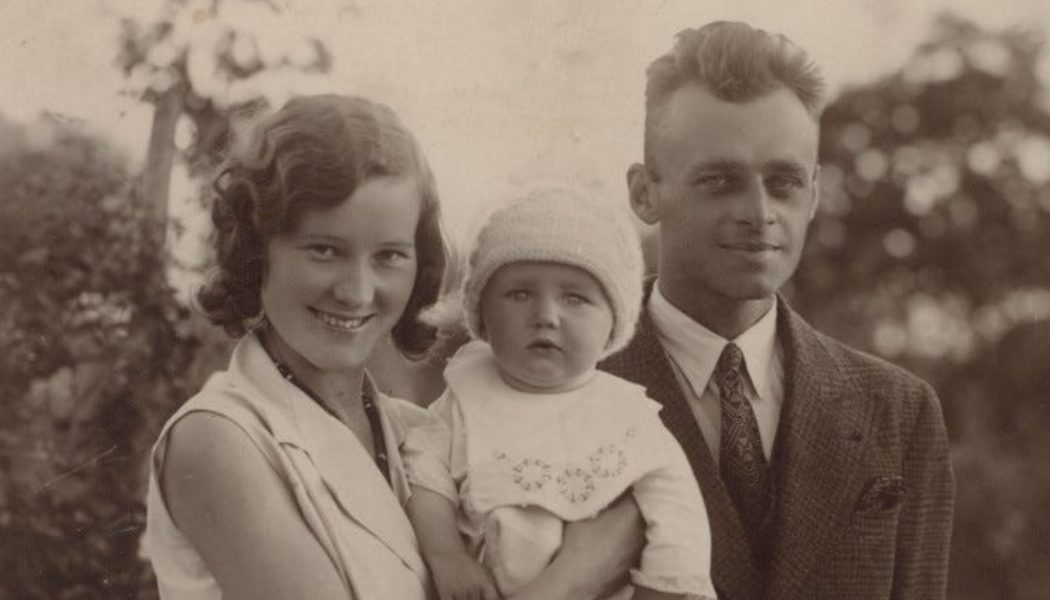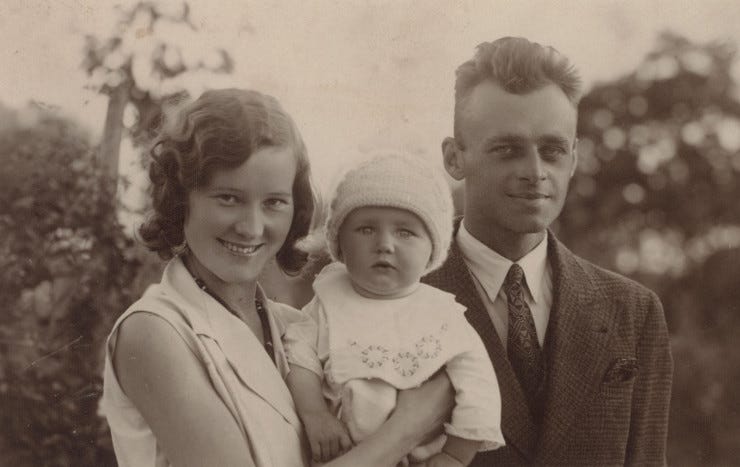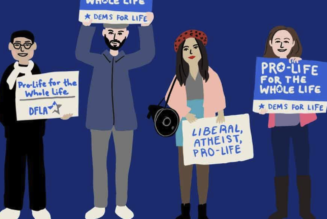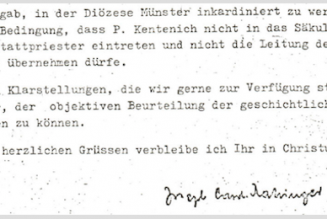Those who say that we’re in a time when there are no heroes, they just don’t know where to look.
—Ronald Reagan
The gate closed with a sickening metallic clang. The day had come.
Tom was in prison.
The first day in prison for a new inmate is never an easy one. The gate closes for the first time, and the world becomes infinitely smaller. Boundaries—vast oceans, roaring rivers, majestic mountains—now replaced by concrete walls, iron bars, and razor wire.
No man ever feels the gate close behind him without asking himself, “what went wrong? How have I come to this place? What am I doing here?”
Tom was in prison, but he didn’t ask himself those questions.
He already knew the answers.
“What went wrong?” Nothing. Everything was proceeding according to plan.
“How have I come to this place?” By choice.
“What am I doing here?” Work. And it started the moment that gate closed.
After all, the gate itself told him as much. Yes, the gate.
It was always believed that to pass through the gates of hell, one’s soul must leave one’s body. The makers of this gate believed something else. They believed that the gates of hell could be joined to these gates on earth.
That was their belief. Tom believed something else. He believed that “the truth will make you free.” The gate was mockery of his belief, for it declared, in cold, steel letters, “Arbeit macht frei.” That is, “Work makes you free.”
This was the most infamous prison gate in mankind’s history, belonging to the most infamous prison in mankind’s history.
Tom had just become prisoner 4859.
In Auschwitz.
How had he come to this place? By choice. As a volunteer. The only person in recorded history who ever willingly stepped through the gates of Auschwitz.
Tom, was Tomasz Serafiński. This itself was an alias, for Tomasz was actually one Witold Pilecki, founding member of the Secret Polish Army, an underground resistance movement. Pilecki’s goal was to gather intelligence from inside the camp. Who was there? How was it run? Could a resistance movement be set up? If so, could they prepare themselves to aid in an expected Allied liberation of the camp?
Once inside the camp, Pilecki almost immediately went about his task of setting up an underground network inside of Auschwitz.
One of the network’s major goals was to gather evidence about the brutality of the death camp, so that the outside world could learn of this invented hell on earth. That the world learned of Auschwitz when it did is due, in large measure, to Pilecki’s heroism and those of his underground network.
A further goal of the network was to try, insofar as it was humanly possible, to save the lives of other prisoners—by stealing food, medicine, and extra clothing. By hiding the sick and injured, they were able to save the lives of some who surely would have been murdered by the Nazi death machinery.
The scale of Pilecki’s underground movement is staggering. Eventually, upwards of 1,000 men were sworn into the group. Save for one gestapo spy, none of these men ever betrayed the others. When one considers that beatings, tortures, and starvation were matter of fact occurrences, combined with the possibility of earning a bit of extra food for betraying your fellow inmates, that this never occurred is nearly miraculous. After all, the entire demonic idea behind Auschwitz is that some humans have no dignity, and are utterly disposable. Seeing men, women, and young children, treated like animals day after agonizing day can lead some men to believe that damnable lie.
Pilecki never believed the lie. His wife Maria would later recount how Pilecki always saw truth as the highest virtue. This is why, in the end, he simply refused to tolerate the lies of his Nazi torturers.
And so, Pilecki would send truth to the world outside the camp, but he would also bring truth inside. It was the truth written down many years later by a fellow Pole who was, at that very moment, in hiding from the Gestapo, less than 40 miles away from Auschwitz. “The dignity of the human person is a transcendent value, always recognized as such by those who sincerely search for the truth.” Though Pilecki would never read those words of Karol Wojytla, who would later become John Paul II, he would daily remind his fellow inmates of this unchangeable truth. Keeping up his fellow inmates’ spirits, even though death was a constant companion, became a personal mission.
Though he had several chances to escape, Pilecki was faithful to his men, and to the oath he swore when he started the Secret Polish Army; he would not save himself unless it would save others’ lives. However, by April of 1943, with train after train arriving in Auschwitz to send the innocent to their death, Pilecki felt that he must escape so that he could personally deliver his report to the Polish underground and the Allies. He would make them understand the utterly inhuman atrocities being perpetrated there—or die trying.
“I said, ‘….I think that prolonging my stay here is pointless. And therefore, I’m leaving.’ [He] looked at me, perplexed, and said: ‘Well, yes, I understand, but can one come to Auschwitz and leave it just like that, whenever one wants?’ – ‘One can,’ I replied.”
And so, through sheer brilliance and ingenuity, Pilecki and two other men managed to secure a job at a bakery just outside the camp. Though the bakery’s door was locked while the men were inside, they managed to use dough to make a mold, and a matching key.
As they sprinted out the door of the bakery, a hail of bullets followed them; Pilecki counted nine. “It is hard to describe how fast we were running…We jumped over trenches, ran across roads and ploughed fields and meadows, we were getting closer to the Vistula and then further from it again, depending on how it twisted and turned. It was not until later that we could truly appreciate how much a man can endure when all of his nerves are put to work.”
They were free.
Time for Pilecki to get back to work.
After delivering his report to his superiors, Pilecki returned to Warsaw to fight in the Warsaw Uprising. He was captured by the Germans, and sent to prison, again, this time for a few months before being liberated.
Only two months later, he volunteered again to serve, this time as a military intelligence officer in Italy. By this time, the Stalinist regime had driven out the legitimate Polish government. Pilecki was therefore ordered to return to Poland, undercover, to gather intelligence.
He accomplished this task with his usual combination of wit, prudence, and almost superhuman courage. Once again he built up an underground network, with many of these men being made up by his former Auschwitz network.
Witold Pilecki may not have heard his own name spoken by another man for years. From assumed name in Auschwitz to many assumed names in Warsaw. He may rightly be called the Polish Scarlet Pimpernel.
However, in July of 1946, his luck finally ran out. His identity had finally somehow been discovered by the Soviets.
He was ordered to leave Poland by his commanding officer.
We know of two oaths that Witold Pilecki made to God with a priest as his witness: his wedding vow, and to his fellow underground founders to give his life, if necessary, to serve “God, Poland, and each other.”
Pilecki would not abandon his family, nor his beloved Poland.
He disobeyed the order. His commanding officer, no doubt in awe at the bravery of Pilecki, thereby canceled his previous order, and approved Pilecki, presently known as “Roman Jezierski” to continue his work.
As expected though, on May 8, 1947, Pilecki was sent to prison, for the third and final time. For 6 months, Pilecki was subjected to brutal and horrible torture by the Communist regime. “Auschwitz was just a child’s play” compared to the torture he was undergoing. The thought boggles the mind.
Finally, the regime conducted a show trial—he was not allowed to testify on his behalf, and there were no defense witnesses—where he was found guilty and sentenced to death.
After his sentence, he was allowed to speak. These are his last recorded words: “I have tried to live my life such that in the hour of my death I would feel joy rather than fear.”
On May 25, 1948, Witold Pilecki was murdered from a single shot to the back of his head. To this day, the location of his remains are unknown.
While he was still in jail, undergoing unspeakable torture, he read, over and over, “The Imitation of Christ” by Thomas à Kempis. Before he died, the last thing that Pilecki told his wife Maria was for her to read the book to their children. “Open it to any page” he told her, “and you will find strength.”
It is clear that Pilecki followed his own advice. There, on chapter XXIII we find the following quote, “Strive now to live in such wise that in the hour of death thou mayest rather rejoice than fear.”
Pilecki’s final words.
We would do well to assume that just as Pilecki followed a Kempis’ advice on death, so too did he follow his advice on how to live.
Chapter XV of the book notes, “He doth much who loveth much. He doth much who doth well. He doth well who ministereth to the public good rather than to his own.”
“‘I was hungry and you gave me food, I was thirsty and you gave me drink, a stranger and you welcomed me, naked and you clothed me, ill and you cared for me, in prison and you visited me.’ Then the righteous will answer him and say, ‘Lord, when did we see you hungry and feed you, or thirsty and give you drink…’ He will answer them ‘Amen, I say to you, whatever you did for one of these least brothers of mine, you did for me.’”
For 947 days in Auschwitz, Witold Pilecki saw. For 947 days, he fed the hungry, gave water to the thirsty, clothed the naked, sheltered the homeless, visited the sick and the imprisoned, and buried the dead.
These are known as the Corporal Works of Mercy.
The ironic sign placed by the Nazis, “Work sets you free” was doubly so. Witold Pilecki worked 947 days in Auschwitz, but not for the Nazis. His work was that of mercy. They did make him free.
“Can one come to Auschwitz and leave it just like that, whenever one wants?”
“One can.”
Witold Pilecki spent 947 days in Auschwitz.
And he was free on each and every one of them.









